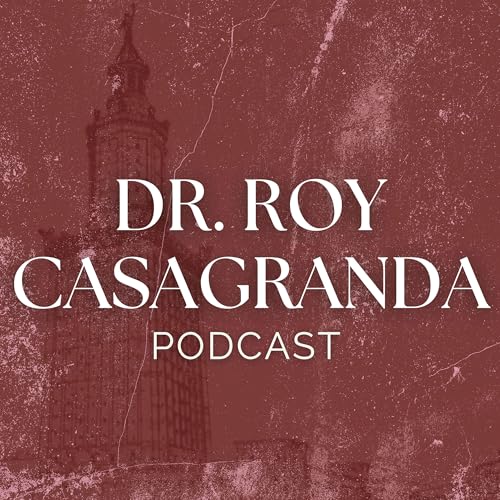
Dr. Roy Casagranda Podcast
Failed to add items
Sorry, we are unable to add the item because your shopping cart is already at capacity.
Add to basket failed.
Please try again later
Add to Wish List failed.
Please try again later
Remove from Wish List failed.
Please try again later
Follow podcast failed
Unfollow podcast failed
-
Narrated by:
About this listen
The Dr. Roy Casagranda Podcast is dedicated to unerasing the erased peoples of the world. Too often, history is written by the powerful, leaving entire communities, cultures, and truths out of the dominant narrative. This show seeks to tell those stories.
Through these conversations, Dr. Roy digs for the truth, weeds out misinformation, and challenges conventional wisdom. The conversations span politics, world history, philosophy, and culture, always with an eye toward justice and a deeper understanding of where we've been, where we are, and where we are heading.
This is the official podcast of Dr. Roy Casagranda and Sekhmet Liminal Productions, FZCO.
Episodes
-
 Feb 11 20261 hr and 47 mins
Feb 11 20261 hr and 47 minsFailed to add items
Sorry, we are unable to add the item because your shopping cart is already at capacity.Add to basket failed.
Please try again laterAdd to Wish List failed.
Please try again laterRemove from Wish List failed.
Please try again laterFollow podcast failed
Unfollow podcast failed
-
 2 hrs and 6 mins
2 hrs and 6 minsFailed to add items
Sorry, we are unable to add the item because your shopping cart is already at capacity.Add to basket failed.
Please try again laterAdd to Wish List failed.
Please try again laterRemove from Wish List failed.
Please try again laterFollow podcast failed
Unfollow podcast failed
-
 Jan 21 20261 hr and 21 mins
Jan 21 20261 hr and 21 minsFailed to add items
Sorry, we are unable to add the item because your shopping cart is already at capacity.Add to basket failed.
Please try again laterAdd to Wish List failed.
Please try again laterRemove from Wish List failed.
Please try again laterFollow podcast failed
Unfollow podcast failed
No reviews yet
In the spirit of reconciliation, Audible acknowledges the Traditional Custodians of country throughout Australia and their connections to land, sea and community. We pay our respect to their elders past and present and extend that respect to all Aboriginal and Torres Strait Islander peoples today.


